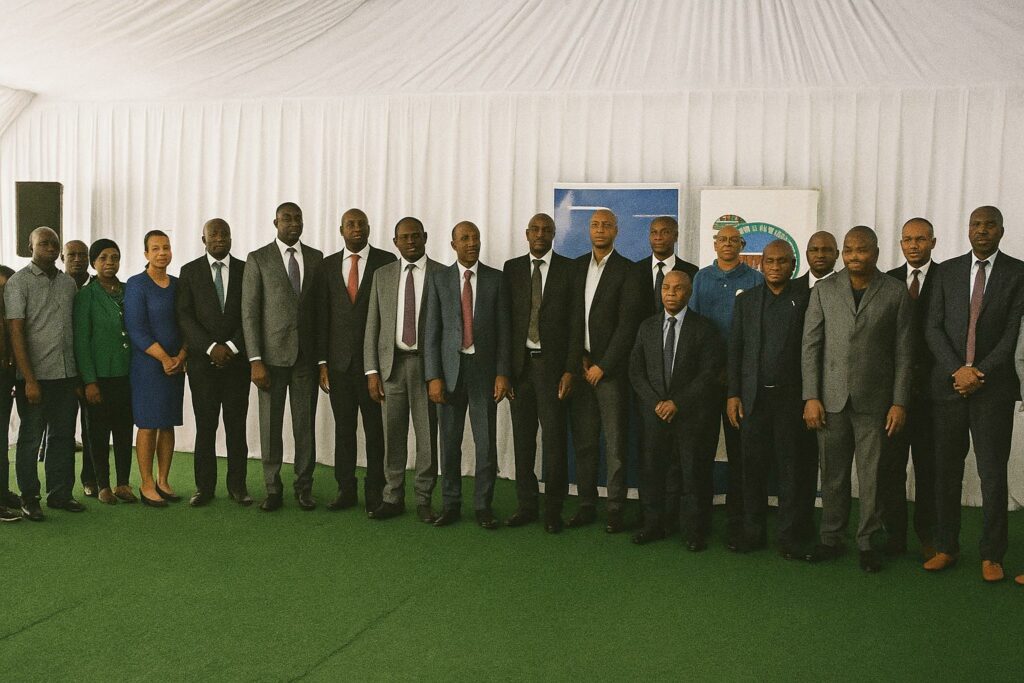A flagship workshop aligned with the national youth agenda
The solemn opening of the four-day training session in Brazzaville, presided over by Charles Makaya, chief of staff at the Ministry in charge of Youth, carried a tone of strategic urgency. By bringing together senior staff of the National Youth Institute and managers of the Aubeville Centre for Insertion and Reinsertion, the government seeks to consolidate a professional corps capable of addressing the multifaceted realities of juvenile delinquency. Makaya’s emphasis on humane, durable and person-centred reintegration underscored the political will to reconcile public security concerns with the constitutional commitment to uphold the rights of minors.
UNESCO–Congo synergy on holistic rehabilitation
UNESCO’s representative ad interim in Congo, Brice Olivier Kwama, framed the partnership as a laboratory for best practice replication across Central Africa. The agency’s technical input is rooted in its 2022 guidance on education in penitentiary settings, which advocates individualized learning pathways and community reintegration (UNESCO, 2022). By embedding this expertise in the national framework, Brazzaville enhances its capacity to translate international norms such as the Beijing Rules on Juvenile Justice into context-specific protocols.
From punitive models to restorative ecosystems
Historically, the sub-regional response to youth offending oscillated between deterrent incarceration and ad hoc social work. The present workshop, however, signals a discernible inflection. Trainees are immersed in modules spanning trauma-informed counselling, skills-oriented pedagogy and community mediation, echoing African Charter provisions that favour restorative justice (African Committee of Experts, 2021). By privileging correctional education over confinement, Congo positions itself within a progressive continental trend that views delinquency through a developmental lens rather than a purely criminal one.
Cross-walking PND 2022-2026 with the Sustainable Development Goals
The government’s National Development Plan lists the Year of the Youth as a cross-cutting vector for inclusive growth. Targets under Pillar 2—human capital—explicitly require the reduction of recidivism and the enhancement of employability among vulnerable cohorts (Government of Congo-Brazzaville, 2022). The new curriculum for centre managers addresses SDG 4 on quality education and SDG 16 on peace, justice and strong institutions, illustrating how domestic planning can operationalise multilateral commitments without diluting national sovereignty.
Pragmatic challenges and credible pathways
Implementing a fully restorative system entails logistical hurdles that participants did not shy away from discussing. Budgetary ceilings, uneven territorial coverage and the lingering stigma attached to former offenders remain structural impediments. Yet, recent fiscal measures reallocating oil revenues toward social programmes, combined with an emergent ecosystem of private-sector apprenticeships in Pointe-Noire and Dolisie, provide tangible levers. Observers note that Congo’s phased approach—pilot, scale-up, institutionalisation—mirrors the incremental strategies endorsed by the African Development Bank for youth employment (AfDB, 2023), lending credence to policy sustainability.
Diplomatic resonance and regional spillovers
Beyond the domestic horizon, Brazzaville is cultivating soft-power dividends by aligning juvenile justice with human-rights-based governance. Neighbouring states contending with similar demographic pressures have discreetly signalled interest in the Aubeville model, opening avenues for South-South cooperation. For international partners, the initiative offers a measurable indicator of accountability within the security-governance nexus, thereby justifying continued technical and financial support. In a geopolitical environment where narratives often conflate youth bulges with instability, Congo’s calibrated investment in skills rather than cells provides a counter-example that could recalibrate donor engagement across the sub-region.

